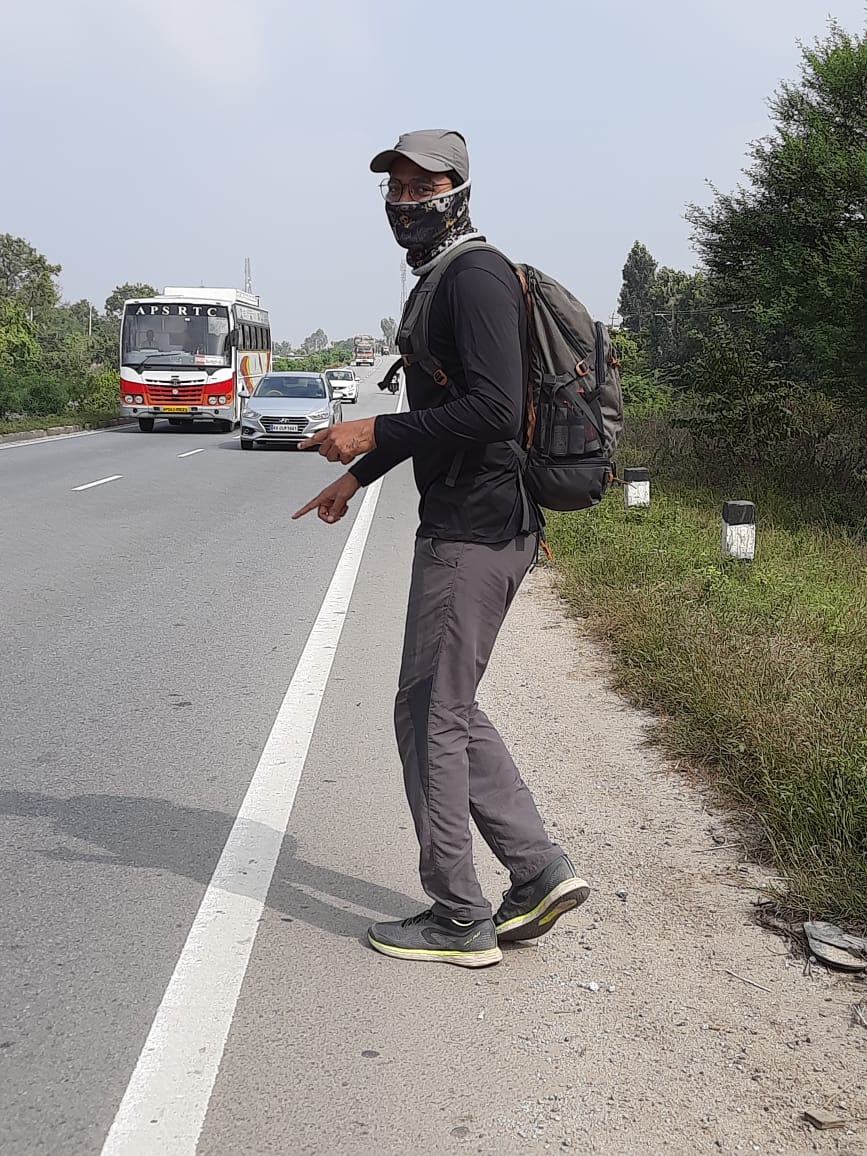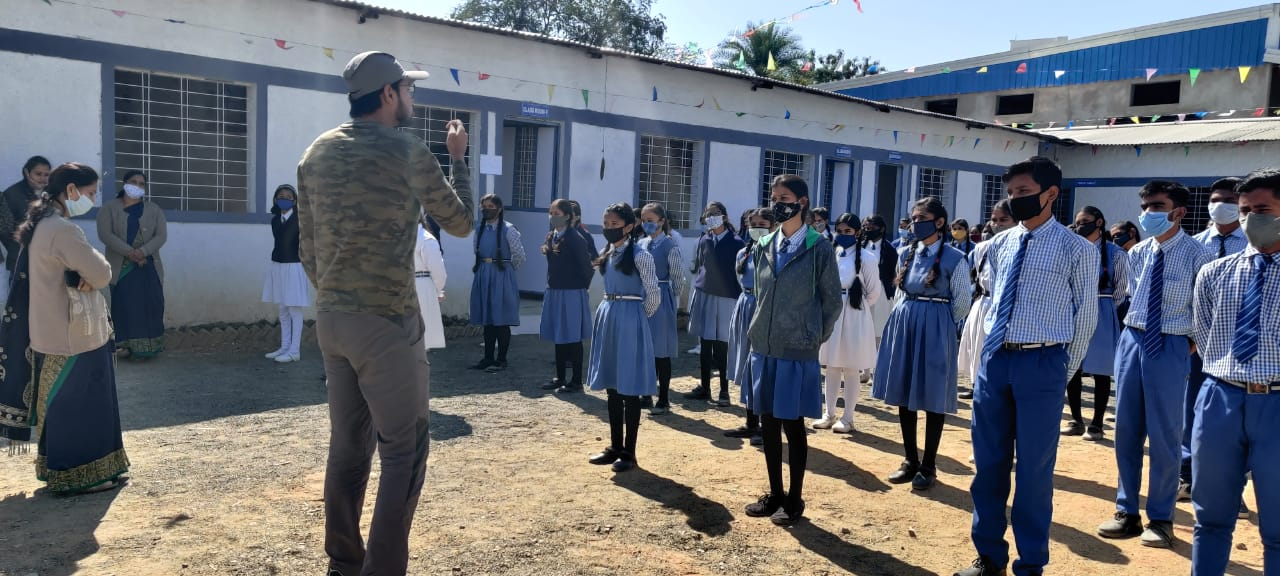“Mental health isn’t a matter of a day or a month or an Instagram live session, it’s an ongoing process, something which we should be consistently thinking about and working on,” says 23-year old Ronit Ranjan, who is currently in Jammu, and has been walking around the country for the past five months with the mission or raising mental health awareness.
Over the course of his journey, which started on November 16, 2020 from Kanyakumari, Ranjan has been interacting with students, workers, and officials to understand the on-ground reality when it comes to mental health. By the end of the journey, he will be compiling his observations and experiences into a report which then would be used as empirical evidence to officially propose a mental health curriculum for school students.

“Last year, when the Bollywood actor Sushant Singh Rajput died by suicide, mental health suddenly became a talking point. Many webinars were held, Instagram Lives were conducted, and what not. However, the discourse faded out soon as people went about their lives,” he said.
The reason, he says, is that no concrete measures were taken to address the problem. With this initiative, he wants to change that by starting the conversation at schools. And for more reasons than one, his journey is also a personal one.
A soldier’s dream
In 2015, after clearing his Class 12 exams, Ranjan got into the National Defense Academy (NDA), his dream college. However, things changed when he suffered from a back injury during the physical training because of which he had to leave the course.
“I was contemplating ending my life when I left the course that I always wanted to do. Those few weeks in the hospital were extremely frustrating as I saw all my aspirations crashing down in front of my eyes,” he said.
Although he made peace with himself post surgery and joined a new college to study humanities, he couldn’t connect with his peers and neither could he concentrate in his course. That’s when he was diagnosed with depression and PTSD.
“After my diagnosis, I realised that I wasn’t the only one suffering from the problem. There were many other students who had the same issues. Even at NDA, there were candidates who were struggling with their mental health problems because there was no free-wheeling conversations around the issue,” he said.
Also read: How We Can Make the Best Use of the Mental Healthcare Act
In 2018, he started writing poetry about his life, and eventually wrote a book titled The Mighty Mustang, which includes poems about his time at the NDA, his suicidal thoughts and some other bits from his personal life. The collection, he says, was received well and a lot of young people personally reached out to him with their own problems. “Many youngsters told me how my book helped them fight suicidal thoughts and get back to life,” he said.

That’s when he realised that he didn’t have to be on the border to be able to save people’s lives. He decided to take the matter into his hands, more so because by that time the pandemic had toppled our lives.
“Mental health became all the more important during the pandemic. Even my sister opened about her own issues. That’s when I thought that if the privileged (like us) are facing this problem, what about those who don’t have even the basic resources?” he said.
Also read: ‘Anxiety, Homophobia, Stress’: Students on Mental Health Concerns During Lockdown
Hence, in order to know more, he familiarised himself with constitutional rights, read up on the mental health policies (if any) in the country, and found that only a minuscule percentage of resources have been allocated to address this issue. Since schools are one of the first few places where such problems arise, he thought having mental health incorporated in school curriculum was the first few steps towards normalising the issue. To that end, he started an online petition seeking people’s approval on his idea.
Furthermore, in order to get even closer to the ground reality, he decided to walk throughout the country.
The walk
On November 16, 2020, he started walking from Kanyakumari, and is now almost on the last phase on his journey after having covered Tamil Nadu, Karnataka, Telangana, Maharashtra, Punjab among others. The journey, he says, has been both challenging as well as eye opening.
Initially, he says, people wouldn’t open up, but as soon as he would say that he is an ex-NDA person, people showed their eagerness. “They wanted to know why an army guy was walking on the road, and that too, during a pandemic,” he said.
While there were definitely health risks involved while traveling, he made sure that they regularly got himself tested and maintained all COVID-19 safety protocols during his journey.

During his long walk, he realised how most people continue to live in denial when it comes to anxiety, depression and mental health. And one the reasons, he says, is the limited number of professional psychologists in the country.
He also noticed that mental health issues depend on a person’s social background. “For instance, I come from Ranchi and the region has many active Naxal groups. So, someone who has grown up in such an environment will have different mental health issues than someone from say, Karnataka, where the political situation isn’t as volatile,” he said.
Although the government, he says, have started mentioning mental health in the passing here and there, we are still way behind other countries. “And now, as we enter into a second phase, the government should perhaps pay more attention to this problem,” he said.
As of now, he is working on to compile his final report before getting into the official process of getting a proposal turn into a legislation in the parliament.
“It’s a long process, and I am sure it will take time, but we are hopeful that schools will soon have a mental health hour and no student would ever think about taking his/her life, just like I did in that hospital room.”
All images provided by Ronit Ranjan

